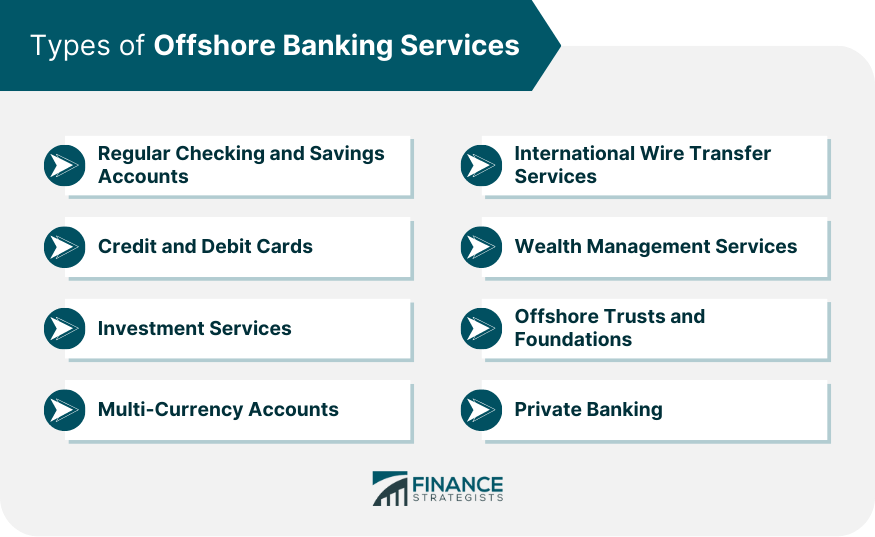Offshore Company Formation: Your Pathway to International Success
Offshore Company Formation: Your Pathway to International Success
Blog Article
Recognizing the Legal Effects of Offshore Company Formation

Legal Structure for Offshore Business
When establishing an offshore company, recognizing the lawful structure governing its formation and procedure is vital for compliance and threat administration. Offshore companies operate under particular regulations and policies that vary from those of onshore entities. The legal framework for offshore companies normally consists of stipulations for business registration, investor requirements, supervisor obligations, and tax obligation obligations.
Firm enrollment includes submitting the required paperwork to the ideal governing authorities in the chosen jurisdiction. This process frequently calls for comprehensive details about the firm's framework, shareholders, and designated tasks. Additionally, offshore business should abide by specific investor needs, such as maintaining a register of investors and keeping this info as much as date.
Supervisors of overseas firms have fiduciary duties to act in the best rate of interests of the business and its shareholders. By sticking to the legal structure controling offshore companies, services can run with confidence while decreasing lawful threats.


Tax Obligation Effects and Rules
Comprehending the tax effects and policies is critical when considering the establishment and operation of an offshore company. Tax obligations play an essential function in the decision-making procedure of whether to establish an offshore entity. Offshore companies are usually subject to desirable tax regimens, providing reduced or absolutely no tax obligation rates on foreign-earned income. Nonetheless, it is necessary to browse these tax benefits meticulously to make sure compliance with both the laws of the overseas territory and the home country.
Tax obligation guidelines for offshore companies differ substantially across territories, and it is vital to seek expert suggestions to comprehend the particular requirements and commitments. Extensive knowledge of tax obligation legislations and regulations, as well as correct tax preparation, are vital to ensure the effective and compliant procedure of an offshore business.
Conformity Demands and Coverage
Making sure compliance with regulative requirements and preserving accurate reporting are crucial elements of taking care of an offshore firm efficiently and transparently. Offshore business should abide by the laws and guidelines of both the jurisdiction in which they are integrated and any various other pertinent jurisdictions where they carry out organization. Compliance demands typically include submitting yearly returns, financial statements, and tax obligation records with the appropriate authorities. Failure to fulfill these commitments can result in charges, penalties, or also the revocation of the business's enrollment.
In addition to regulatory compliance, offshore companies are typically based on reporting demands to make sure openness and stop prohibited tasks such as cash laundering or tax obligation evasion. Coverage obligations might include revealing info regarding the business's ownership structure, financial tasks, and recipients. This info may need to be shared with regulatory bodies, tax obligation authorities, or various other governmental firms, depending upon the jurisdiction.
Preserving extensive and precise documents is critical for showing compliance and responding to any kind of questions or audits effectively. Offshore business should implement durable reporting mechanisms and inner controls to make sure that they meet all lawful demands and operate with honesty.
Property Security and Personal Privacy Rules
In the world of overseas firm development, an essential factor visit the website to consider is the interaction in between possession security methods and privacy laws. By structuring assets within an offshore company, people can guard their wide range and expand their holdings across different legal structures. Eventually, comprehending the elaborate relationship in between possession protection strategies and personal privacy legislations is vital when thinking about offshore firm formation.
Obstacles and dangers to Think about
When venturing into overseas business formation, sensible consideration of potential threats and difficulties is important for educated decision-making and critical preparation. One considerable danger to think about is the possibility of increased analysis from governing authorities because of the perceived organization of overseas entities with tax evasion and money laundering. This heightened examination can lead to considerable compliance needs and potential lawful implications otherwise correctly addressed. Furthermore, political instability or changes in offshore territories can position a threat to the continuity of operations and the defense of assets held by the overseas firm.
Challenges may likewise develop concerning the complexity of offshore business frameworks and the need for professional legal and economic advice to navigate the elaborate regulative structures of various territories (offshore company formation). Keeping conformity with differing international laws and policies, in addition to prospective language obstacles and social distinctions, can better make complex the a fantastic read overseas firm development procedure. It is critical to be familiar with these risks and challenges before waging overseas firm development to minimize possible challenges and make certain a lawfully sound and smooth establishment
Final Thought
Finally, offshore firm development involves browsing intricate legal frameworks, tax obligation ramifications, compliance requirements, and personal privacy legislations. Understanding these facets is critical for alleviating obstacles and risks linked with overseas company procedures. It is very important for individuals and organizations taking into consideration offshore firm formation to look for expert guidance to make sure compliance with regulations and to shield their assets properly.
The legal structure for offshore business generally consists of provisions for business enrollment, shareholder needs, director obligations, and tax responsibilities.
Supervisors of offshore business useful link have fiduciary duties to act in the finest passions of the company and its investors. By sticking to the legal framework controling offshore business, services can run with confidence while lessening lawful risks.
Furthermore, political instability or adjustments in overseas jurisdictions can position a threat to the connection of operations and the defense of assets held by the overseas business. - offshore company formation
In final thought, overseas business formation entails browsing complex legal frameworks, tax obligation effects, conformity requirements, and privacy legislations.
Report this page